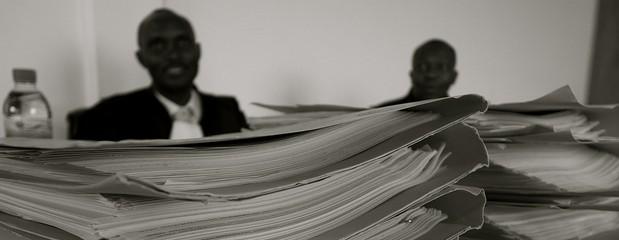A Big Bang and a Bright Idea as satellite coverage strengthened over Africa – By Richard Dowden

 We have all seen rocket launches on TV but nothing prepares you for the real thing. From a couple of miles away, the rocket looked like a distant steeple glistening peacefully in the sun. Assembled in an open air viewing platform, we were casually chatting. Then the countdown began. As it reached “Two ….One”, a vast explosion of smoke roiled out from the base of the rocket. A painfully bright tongue of flame spurted downwards and the silver tube rose, then shot towards the clouds with terrifying acceleration. Then the bang hit like a blow to the stomach. The rocket flashed through the clouds losing its boosters, then arced beautifully eastwards across the sky until silence finally absorbed its roar and its booming echo.
We have all seen rocket launches on TV but nothing prepares you for the real thing. From a couple of miles away, the rocket looked like a distant steeple glistening peacefully in the sun. Assembled in an open air viewing platform, we were casually chatting. Then the countdown began. As it reached “Two ….One”, a vast explosion of smoke roiled out from the base of the rocket. A painfully bright tongue of flame spurted downwards and the silver tube rose, then shot towards the clouds with terrifying acceleration. Then the bang hit like a blow to the stomach. The rocket flashed through the clouds losing its boosters, then arced beautifully eastwards across the sky until silence finally absorbed its roar and its booming echo.
This all took place at the launch of the European Space Agency’s (ESA) Ariane 5 rocket from the ESA base at Kourou in French Guiana. Part of Ariane 5’s 9.6 tonne payload was Alphasat, a satellite built by Inmarsat – a company that provides “˜global voice, data and IP communications solutions’ – that could have a revolutionary impact on the availability of satellite communications services to African countries
At 6.7 tonnes, Alphasat is the biggest satellite built by Inmarsat so far. Two and a half times more powerful than any of the previous Inmarsat satellites, it will come to rest 22,500 miles up, somewhere over the middle of Congo. So far the mission has gone well – something that is not taken for granted among its creators.
Inmarsat was founded 1979 by the International Maritime Organization (IMO) so ships could stay in constant touch and summon help in an emergency. It still handles thousands of distress and safety calls a year. Over 30 years later, Inmarsat continues to be at the heart of maritime and aviation safety systems whilst also growing into a global leader in mobile satellite broadband communications services. The company provides voice and data communications across the world – particularly in areas where terrestrial systems are non-existent or unreliable. Its communication satellites are now used by organisations ranging from governments to aid agencies and from ship owners to mining companies. Inmarsat is also used by airlines across the world, by journalists reporting from remote regions and anyone outside the range of mobile or fixed line terrestrial telecommunication networks. .
At Inmarsat’s headquarters in London, the map of the world is laid out across a vast screen overlaid with a honeycomb pattern. Each segment represents a sector, small at the equator directly beneath the satellite and elongating as the curvature of the earth extends north and south. This new satellite – Alphasat – will cover the whole of Africa, the oceans each side and most of southern Europe, the Middle East and West Asia.
But looking at the back-lit digital wall map, it is clear that while in Afghanistan, Iraq and other stressed places, usage is very high, there are almost no calls or communications in vast swathes of Africa. And these are also the areas that are not economic for mobile phone companies to build transmitters in. Despite the explosion of mobile phone use across the continent in the last decade, these areas are not covered and satellite communications have been far too expensive.
This, says Rupert Pearce, CEO of Inmarsat, could change soon, as the price of sat-phones and satellite communication may be about to fall dramatically. “The cost per bit is coming down enormously as we become more efficient and more effective with investment in new technology. Sat-phones that once cost $2000 dollars now retail at $500.” The huge capacity and efficiency of Alphasat means that in the predictable quiet periods, airtime could be sold at a discount or subsidised for universities, schools and hospitals by the big corporate users. Massive Online Open Content Courses (Moocs) could be made available to remote villages and schools in Africa. Telemedicine by satellite – already widely used by the shipping and aviation industries – could easily be made available to far flung hospitals and clinics – or even by individuals through mobile phones linked to a wifi hotspot.
Africa has the world’s fastest growing numbers of mobile phones per capita. The bank on your phone and other major innovations in mobile telephony also started in Africa. With a relative lack of infrastructure and very few landlines, Africa has been able to jump a generation faster than most developed countries. Could this new satellite provide even cheaper telephone calls and especially broadband for all in Africa, even in the remotest places?
Richard Dowden is Director of the Royal African Society and author of Africa: Altered States, Ordinary Miracles published by Portobello Books.





